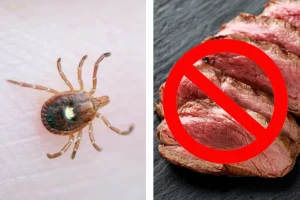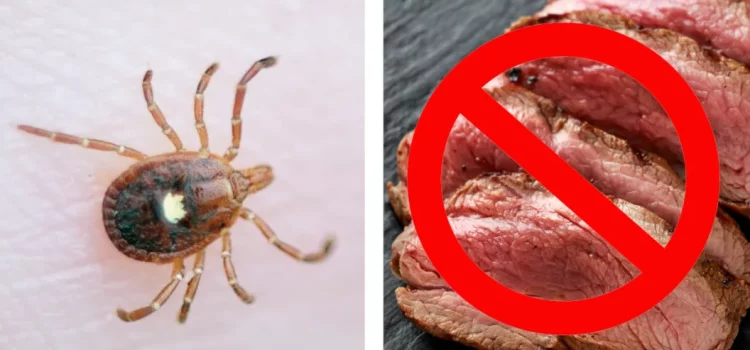
Introduction: A Startling Discovery
In an unexpected turn of events, the Centers for Disease Control and Prevention (CDC) has uncovered an unusual culprit behind a growing health concern – meat allergy resulting from tick bites. In this article, we delve into this surprising link and its implications for many Americans.
1. Unmasking the Meat Allergy
Understand the nature of the meat allergy that arises after tick bites, including its symptoms, onset, and underlying mechanism.
2. Tick-Borne Culprits
Identify the specific tick species responsible for triggering this unusual allergic reaction and the geographic regions where cases have been reported.
3. A Growing Concern
Examine the increase in reported cases of meat allergy linked to tick bites and the potential reasons behind this upward trend.

4. Unraveling the Allergic Pathway
Explore the research conducted by the CDC to unravel the underlying allergic pathway, shedding light on the immune response triggered by tick saliva.
5. Diagnosing and Managing Meat Allergy
Learn about the challenges in diagnosing meat allergy from tick bites and the approaches used to manage and treat affected individuals.
6. Public Health Measures
Discover the public health measures and recommendations put forth by the CDC to prevent tick bites and mitigate the risk of developing meat allergy.
7. Raising Awareness and Prevention
In the face of this emerging health concern, explore the efforts of the CDC to raise awareness among healthcare professionals and the public, emphasizing early recognition and prevention.
Conclusion: A Cautionary Tale
In conclusion, the CDC’s discovery of a meat allergy resulting from tick bites serves as a cautionary tale of the intricate relationship between human health and the environment. As we continue to explore and understand this unusual health concern, it becomes increasingly important for healthcare professionals, researchers, and the public to be vigilant about tick bites and their potential consequences. By raising awareness, implementing preventive measures, and fostering responsible behavior, we can reduce the incidence of meat allergy and protect the well-being of many Americans. The CDC’s work in uncovering this surprising link underscores the significance of ongoing research and public health efforts to address emerging health challenges, ensuring that we stay informed and prepared to face the complexities of our changing world.










